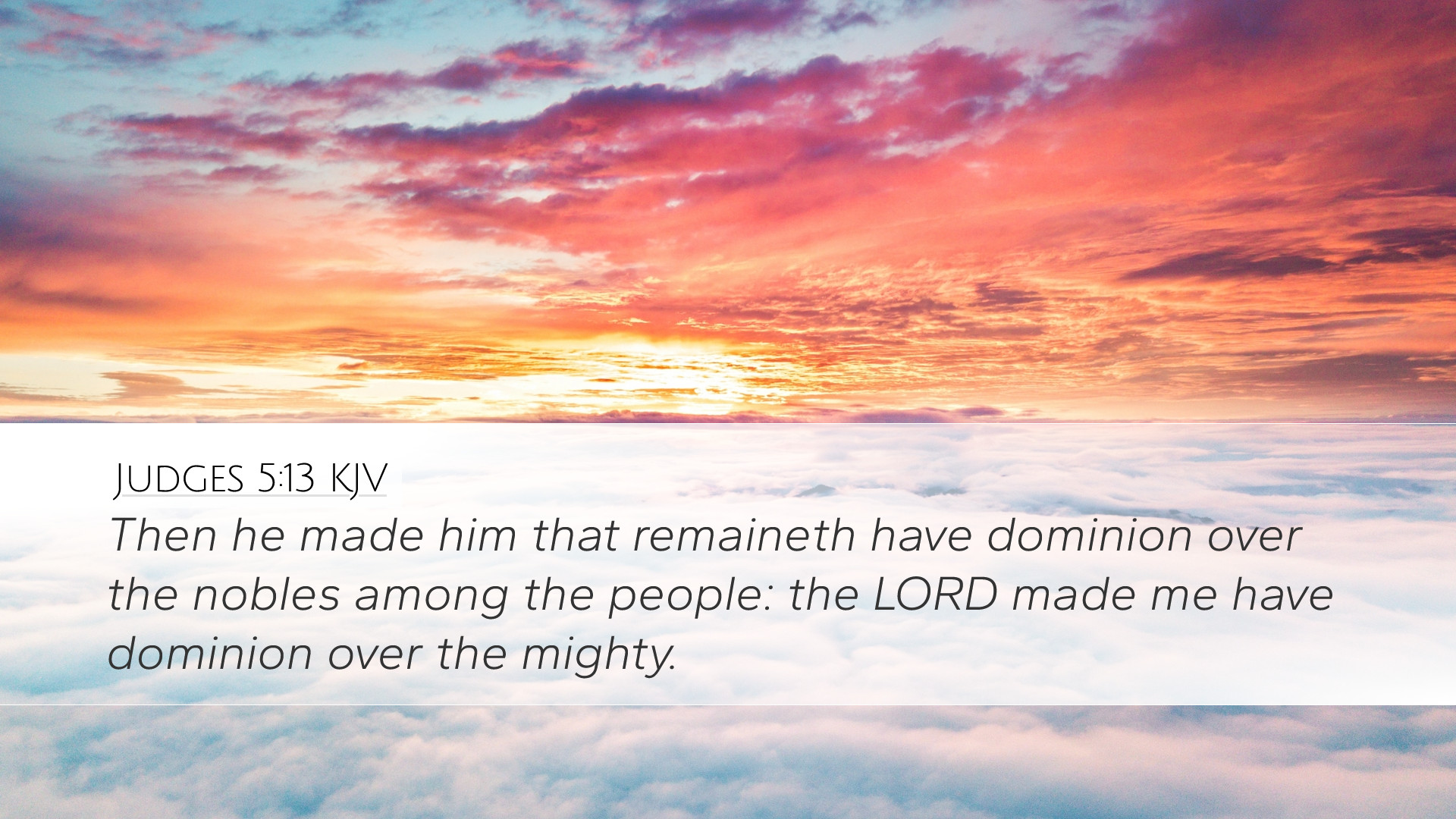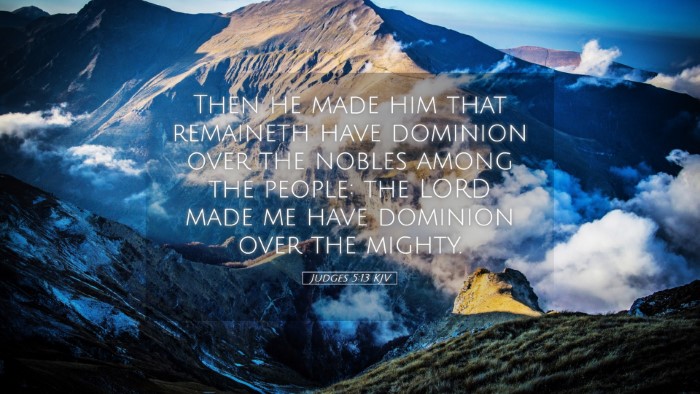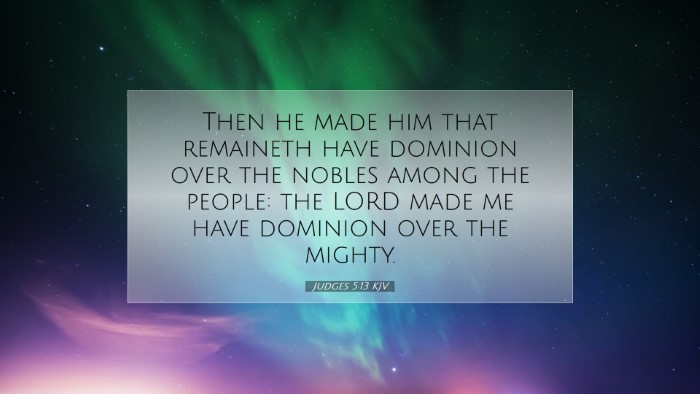Old Testament
Genesis Exodus Leviticus Numbers Deuteronomy Joshua Judges Ruth 1 Samuel 2 Samuel 1 Kings 2 Kings 1 Chronicles 2 Chronicles Ezra Nehemiah Esther Job Psalms Proverbs Ecclesiastes Song of Solomon Isaiah Jeremiah Lamentations Ezekiel Daniel Hosea Joel Amos Obadiah Jonah Micah Nahum Habakkuk Zephaniah Haggai Zechariah MalachiVerse
Judges 5:1 Judges 5:2 Judges 5:3 Judges 5:4 Judges 5:5 Judges 5:6 Judges 5:7 Judges 5:8 Judges 5:9 Judges 5:10 Judges 5:11 Judges 5:12 Judges 5:13 Judges 5:14 Judges 5:15 Judges 5:16 Judges 5:17 Judges 5:18 Judges 5:19 Judges 5:20 Judges 5:21 Judges 5:22 Judges 5:23 Judges 5:24 Judges 5:25 Judges 5:26 Judges 5:27 Judges 5:28 Judges 5:29 Judges 5:30 Judges 5:31


Commentary on Judges 5:13
Judges 5:13 states: "Then came down a remnant of the nobles and the people; the Lord came down for me against the mighty." This verse is part of the Song of Deborah, which celebrates the victory of Israel over their oppressors. It highlights the themes of divine intervention, leadership, and the mobilization of God’s people. Below is a summary of insights collected from various public domain commentaries.
Contextual Overview
In the broader context of Judges, chapter 5 serves as a poetic reflection on the military victory achieved by Deborah and Barak against Sisera, the commander of Jabin’s army. This passage draws attention to the moral and spiritual dimensions of Israel’s struggle against their enemies.
The Divine Calling of a Remnant
Matthew Henry notes that the passage indicates the importance of a "remnant" among the people of Israel. The term "remnant" points to those who remained loyal and committed in their faith despite the prevailing idolatry and corruption amongst their peers. This aspect of faithful leadership is pivotal, as it signifies that God often works through a small number of dedicated individuals to achieve His purposes.
Albert Barnes elaborates on the "nobles" who are highlighted in this verse. He emphasizes that the involvement of these leaders signifies the restoration of godly leadership within Israel. Their descent to join the battle reflects a restorative movement towards faithfulness in leadership, which is essential for the health of the community.
The Lord’s Action in the Battle
The notion of the Lord "coming down" invokes imagery of God’s active involvement in human affairs. Adam Clarke suggests that this phrase emphasizes God’s initiative in turning the tide of battle. It’s not merely the might of Israel that wins, but God’s direct intervention on their behalf. This theme of divine agency is central to understanding Israel's victories throughout the Book of Judges.
Theological Implications
Reflection for Today
Judges 5:13 offers valuable lessons for pastors, students, theologians, and scholars today. The call to recognize and support a faithful remnant within the contemporary church context is crucial. It challenges leaders to seek God’s intervention actively, while also motivating congregants to stand firm against cultural pressures, just as the nobles and their people did in Deborah's time.
Moreover, the acknowledgment that “the Lord came down for me against the mighty” serves as a powerful reminder that regardless of how insurmountable the challenges may seem, God is present and active. This assurance should embolden believers to engage in the fight against spiritual enemies with the confidence that they are not alone.
Conclusion
In sum, Judges 5:13 encapsulates a profound truth about community, leadership, and divine intervention. By examining this verse through the insights of respected commentaries, individuals engaged in theological studies can glean important principles for today’s ministry context. It serves as a call to recognize God’s sovereignty and act with faithfulness, engaging both individually and as a community in the mission God has placed before His people.